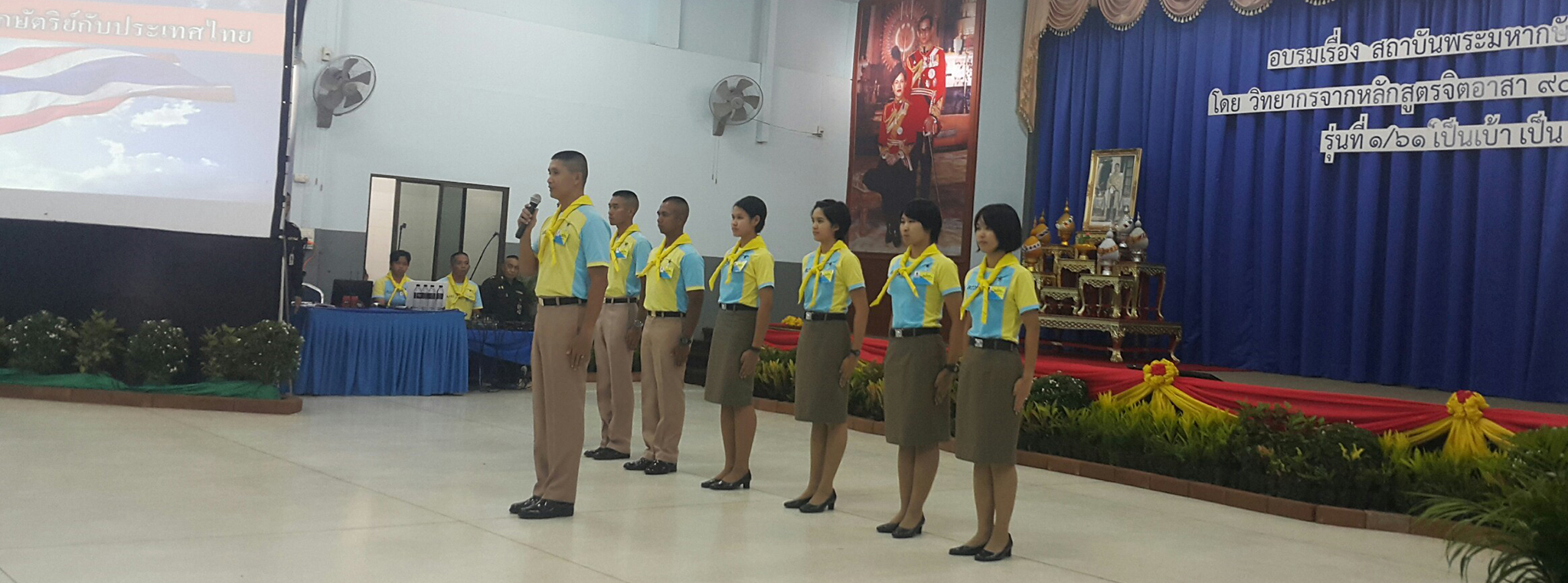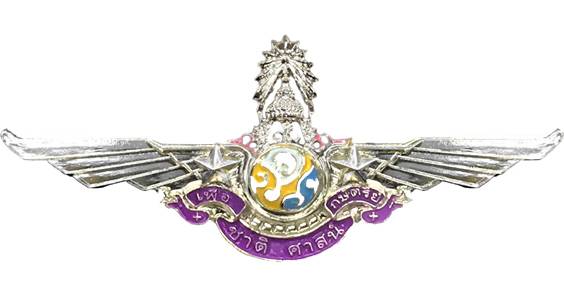
Training curriculum for Royal Initiative Volunteers 904
The Royal Initiative Volunteer Project began as a result of the concern of His Majesty King Maha Vajiralongkorn, Rama X, for the wellbeing and happiness of his people, his desire to bring stability and unity to the nation, and his vision to further King Rama IX’s royal projects to relieve the suffering for the people and develop the country.
The Royal Initiative Volunteer Project was launched on 21 June 2107 at Sukhothai School, Dusit District, Bangkok, as a small starting point, just as one would clean up the surroundings of one’s own house first.
Volunteers can be divided into 3 categories:
- Development Volunteers: carry out development work to improve their respective communities, from nature and environmental conservation, to the improvement of public amenities, safety, vocations and health.
- Disaster Relief Volunteers: monitor and plan disaster relief strategies for both natural and man-made disasters that will affect the people in the area, and provide relief for victims of floods, storms and fires.
- Ad hoc Volunteers: conduct activities at ceremonial events or to receive the King on various occasions, work with relevant government units to facilitate public participation, and prepare pre-event and venue arrangements, as well as restore normalcy to the venue after the event.
Volunteer Training under Royal Initiative
For the Royal Cremation Ceremony of King Rama IX and the Un Ai Rak Winter Fair, approximately 4 million people showed interest in signing up as Ad Hoc Volunteers. It was therefore necessary to select qualified persons to receive training as volunteer leaders, to provide them with skills training, instill a sense of stability in the institutions of nation, religion and monarchy. Training sessions were planned carefully to help participants become partners in the development and protection of the nation, and to become loyal subjects to the throne.

3 tiers of volunteer training:
- General curriculum – 7 days
- Main curriculum – 6 weeks
- Special curriculum – 3 months
Objectives of the training programme:
- To enable participants to become trainers within their own military units and designated areas.
- To enable participants to become leaders of volunteers so they conduct their activities effectively, to provide advice on volunteer work, and apply this knowledge to provide disaster relief with emphasis on the 4 basic necessities of life, education, medical treatment and vocations.
- To enable participants to understand the problems facing the country, to pinpoint problems within each locality, and to provide advice to regional volunteers so the Control Centre can properly analyse the situation and provide direct assistance.
- To enable participants to have the knowledge, discipline, character and skills to help others, to become model citizens for the growth of the country.
- To enable participants to become trainers for the next generation of volunteers.
- Possess positive attitude towards the country and the monarchy; be willing, respected, selfless, and mindful of the benefit for society.
- Officially cleared as not a security threat o the nation.
- Approved by superiors to attend the training course, with attendance counting as official duties, and supervisors being allowed to find replacements during their absence.
- Possess good health; able to attend the duration of the course; not suffering from chronic diseases; not pregnant.
- Considered by superiors as an excellent candidate who will contribute to the growth of the country.
- General military practices (27 hours) to improve physical strength, understand orders, responsibilities, general military discipline; to learn how to think systematically.
- Knowledge training – ideology/monarchy (85 hours) to learn about Thai history especially the contributions of each king from past to present; how they protected the country from threats such as colonialism, the spread of communism during the Cold War, and poverty.
- Knowledge on volunteering (80 hours) to learn proper guidelines on volunteer work, to be able to develop personnel to their full potential in effectively carrying out their duties in the three volunteering categories.
- Vocational studies – optional (30 hours) with a choice of 1 subject that will help various volunteer activities. Participants will be presented with a certificate upon completion of the course.
- Electrician
- Electricity lineman
- Carpenter
- Plumber
- Cement mason
- Painter
- Small machine technician (for agriculture)
- Vegetable and fruit carving
- Flower arrangement and garland making
- Making lotus-shaped flower arrangements
- Thai cooking
- Thai desserts and snacks
- Food preservation and processing
